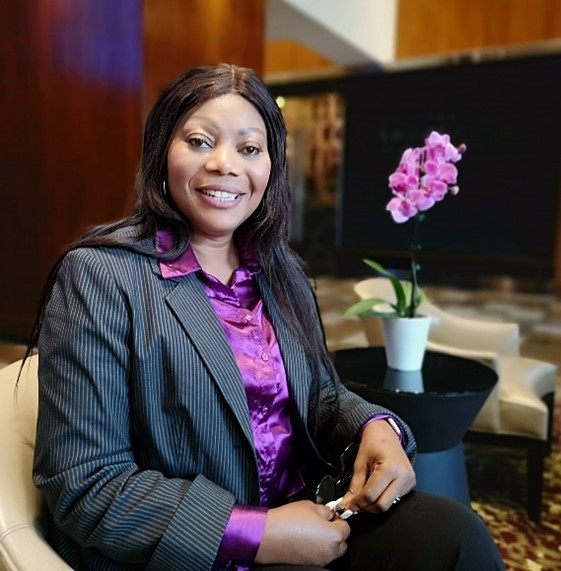
A 25-year journey: CWICE History
“History, as nearly no one seems to know, is not merely something to be read. And it does not refer merely, or even principally, to the past.
On the contrary, the great force of history comes from the fact that we carry it within us, are unconsciously controlled by it in many ways, and history is literally present in all that we do.
It could scarcely be otherwise, since it is to history that we owe our frames of reference, our identities, and our aspirations.”1
– James Baldwin, 1965
We speak about Canada’s immigration history, and why this matters, within the CWICE 101 course for child welfare professionals. We discuss the ways history is constantly tied to the present. We challenge learners to examine and identify systemic gaps and inequities that pose barriers to children, youth, and families today. In doing so, as service providers, we work to overcome the numerous challenges facing our clients and ourselves as professionals.
As a Centre of Excellence, CWICE is well positioned to identify service issues and we offer a structured response to system navigation across Ontario and beyond. This means CWICE team members have an advantage in terms of identifying emerging trends, and we hold a responsibility to advocate for the elimination of systemic issues. However, this unique vantage point and position did not happen overnight. CWICE has been a nearly 25-year work-in-progress, and to understand where we are today, we have to know how we got here. For this history, we’ll review agency history and speak with colleagues.
As an organization, CAS got its start on April 23, 1912, with its first board of directors meeting held in a Brampton church. The region has grown dramatically in the last century2. With a population of nearly 1.5 million, last year Peel CAS responded to over 10,000 calls and provided service to 7,000 families across 45 languages3.
In addition to population growth, Peel Region has become one of Canada’s most diverse communities. Today, 1 in 2 Peel residents were born outside Canada3. Also located in Peel Region is Canada’s busiest airport, Toronto Pearson International Airport. Within Peel CAS, an immigration team was formed once the agency began receiving calls about unaccompanied and separated children from Canada Border Services Agency (CBSA).

Mohamed Shaw, of Peel CAS’ CWICE, recently celebrated 20 years of service and he was there in the beginning. His efforts, along with many other colleagues, led the way for the Child Welfare Immigration Centre of Excellence (CWICE) to be developed.
Looking back, Mohamed recalled completing his placement with Peel CAS in 1999. He still remembers the first youth he provided service to. A 14-year-old girl was stopped at the airport, due to being with a 40-year-old who was not their guardian. The girl’s parent, who had died prior to her arrival, was a Canadian citizen, which meant she was eligible for Canadian citizenship. Mohamed helped her gather documentation to ensure she obtained citizenship. Years later, when she was an adult, she again reached out to Mohamed for assistance obtaining documentation.
Mohamed noted that it took several years for the team to develop into the Immigration Team. Mohamed stayed with the team throughout this process, and fondly remembers the young people he has supported through the years. He recalled another 14-year-old seeking asylum who was unaccompanied. The youth’s claim was denied and it took several years before they were able to obtain permanent residency for him. He also remembered a young child, age 8, who had arrived with a smuggler and was left alone in the airport. He smiled as he spoke, recalling this child was accepted as a refugee claimant and has gone on to post-secondary studies at University. In CWICE, Mohamed is known for never hesitating to support a child or youth, after hours or on the weekend, and it is these efforts and allyship with children that have often resulted in them giving him updates about their lives as they’ve grown into adulthood.

Liz Okai has been with the agency for over 15 years and provided leadership in the Immigration Team (and now CWICE) for well over a decade. In the early days of her tenure, she recalled “Team members were at varying degrees of knowledge in immigration policies and processes. Much of the specialized work on the team was centered around meeting the needs of unaccompanied and separated children, including attending the airport for child protection assessments”. At that time, only a few team members were involved in the specialized work.
After her first few months leading the team, they implemented a more structured way of documenting consultations and collecting data about their work. This helped them advocate for funding “to assist families in dire need of financial assistance, given that many of the families we work with are not eligible for government financial assistance due to their precarious immigration status.” These were important changes that helped pave the way for the CWICE we know today.
As time moved on, the Immigration Team began to expand its focus from addressing primarily the needs of unaccompanied and separated children to working with families in the community who were experiencing immigration status and/or settlement issues. Liz shared about another change, in 2014, when “Global Affairs Canada partnered with us regarding border related issues to assist children and youth citizens caught in precarious situations abroad and needing to return to Canada.” She explained this was less about immigration and more about supporting children and youth during vulnerable, difficult, and uncertain times in their lives where much change was occurring. Today, CWICE continues this work, which includes supporting children/youth returning following the death of their parent abroad or fleeing forced marriage concerns for example.
Liz shared that she and Service Director Mary Beth Moellenkamp (now Peel CAS’ CEO) began working together around that same time. Together they worked to raise the profile and expertise of the team. Liz recalled that, “Beth quickly recognized the importance of the work, not only the benefit to individual children but also how this expertise could benefit the entire sector.” They led efforts to collaborate internally with all service branches to streamline cases with immigration status and/or settlement issues to the Immigration Team.
To ensure cross-sector training, the team visited the Immigration Holding Centre, IRB, Matthew House, and worked on updating agreements with CBSA and the United Nations High Commissioner for Refugees. As well, they invited lawyers to present to team members or held meetings with CBSA so officers could better understand the work of child welfare professionals and vice versa. A milestone was achieved when the Ontario Association of Children’s Aid Societies created a collaborative group that drafted the First Edition of Immigration Status Matters – a manual about immigration status. CWICE later updated the draft, building upon the earlier work, and OACAS continues to share the Second Edition of Immigration Status Matters guide today.
Mohamed reflected that the work was done invisibly for many years, but the team made important progress, advocating for children or youth in care to obtain immigration status. “For example, we worked with a Senator to make changes to the Citizenship Act.” Mohamed referenced Bill C-6, which amended the Citizenship Act in 2017. Peel CAS supported the proposed Bill by Senator Victor Oh, a champion of the work and local Senator, to ensure children and youth could apply for citizenship when they live in out-of-home care.
Building and strengthening partnerships has long been key to the team’s success. For example, during the Syrian Project (2016-2019), the team had great opportunities to create important partnerships with community and settlement organizations such as Polycultural Immigrant and Community Services, Peel Multicultural Council, Punjabi Community Health Services, Peel Newcomer Strategy Group, and Indus Community Services. Today these are important organizational partnerships Peel CAS continues to enjoy, and though The Syrian Response Project was a pilot project, its success informed the development of CWICE, at least as a concept. Regarding partnerships, Liz is well quoted for saying, “We can’t do this work alone”, and this ethos is ingrained in each professional in CWICE today.
Mohamed reflected that there have been big changes over the years, most remarkably when CWICE opened on June 13, 2018. “We are not just serving our own agency or stakeholders, we are serving all over the world. We interact with international social workers and Global Affairs Canada. They respect the work we’re doing and, there is no doubt we are helping them.” Both Liz and Mohamed believe CWICE has a bright future. They agreed there have been many notable achievements since CWICE launched. They expect the work to grow in the next few years with all that is happening globally. Mohamed and Liz have seen and lived the trends, so we’ll heed their advice to be prepared to respond, pivot and evolve as has always happened.
With thanks:
We wish to honour and thank all the dedicated colleagues that played various roles over the years.
We thank our CWICE historians Mohamed Shaw and Liz Okai for their years of dedicated service and its impact, and for sharing their memories with us.
Lastly, thanks to all current CWICE team members for carrying many traditions while finding new ways to innovate every day:
Mohamed Shaw Gillian Tennyson Abimbola Fajobi Mandisa Sifelani Yvonne Dewornu-Keys Abimbola Oyeyinka | Roya Nang Loubna Zouggari Liz Okai Claudia Obreque Celistine Frampton Alicja Grabarczyk | Fatima Mukai Rosario Elmy Thomas Abraham Ghezal Wallid Zrinka Buric Danielle Ungara |
Resources:
2 Population Growth - Region of Peel (peelregion.ca)
3 pnsg_2019-report-on-peel-newcomers_v1-6_interactive.pdf (peelnewcomer.org)
About author:
 Danielle Ungara, RSW (she/her, grateful to be on Treaty 13 land) co-manages the Child Welfare Immigration Centre of Excellence (CWICE) at Peel CAS. Danielle believes in furthering social justice outcomes, and equity, through service excellence and research.
Danielle Ungara, RSW (she/her, grateful to be on Treaty 13 land) co-manages the Child Welfare Immigration Centre of Excellence (CWICE) at Peel CAS. Danielle believes in furthering social justice outcomes, and equity, through service excellence and research.
